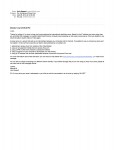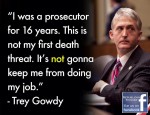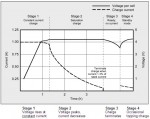I mean I watch television using Hulu but if I’m going to pay cash (for Hulu+) I’m going to watch using NetFlix. Seriously dude, Comcast already owns NBC and NBC created Hulu, and I watch commercials to view Hulu content. So, Comcast, you want to sit in the middle and just collect money from all directions?
I got this recently from some of the places I steal internet access after trying to watch Superships:

We gotta know who you are and where you are. Sincerely, Comcast
So I was feeling magnanimous and I filled out the form and sent it in. And this is what Comcast sent in reply the next day.

Useless responce from Comcast/Hulu
Anonymous Proxy Error
And unexpectedly I received this follow up e-mail.
Hi again,
I just wanted to send a quick follow-up to see if everything’s all taken care of, or if there’s anything else I can help you with.
If you’re all set, you can let me know or I’ll just mark this as resolved if I don’t hear from you in the next few days.
Thanks,
Miranda
Hulu Support
*If everything is taken care of, you can reply “ALLSET” to let us know automatically.
Well, no everything is not alright. You still want to collect more information on my location. So I sent this snarky reply.
On Apr 29, 2014, at 1:06 AM, Hulu Support wrote:
I just wanted to send a quick follow-up to see if everything’s all taken care of
No, everything is not all taken care of. Removing the proxy server is not an option. Paying for television with commercials is an option and I’ll choose Netflix if I have to purchase even though I know that your parent company is already charging “protection” for the transport of the Netflix stream.
Art
Miranda H, Apr 25 09:30 PM:
Hi Art,
Thanks for writing in! I’m sorry to hear you’re encountering the international restrictions error. Based on the IP address you were using when you submitted this message, our system determined that your computer was accessing our site using a proxy server. Once you disable it, you should be able to watch videos on Hulu again.
A proxy server is a server that acts as an intermediary between your computer and the Internet. It’s possible to use an anonymous proxy and not realize it. A few common scenarios can lead to being blocked by our system are:
1. attempting to access Hulu from outside of the United States
2. using an unsupported mobile phone to access Hulu.com
3. using a VPN or other work network to access the Internet
4. using a program on your computer to anonymize your web surfing
5. using an IP address that has been blacklisted because of previous Anonymous Proxy use
For more information about these scenarios, you can read our help article here ( http://www.hulu.com/support/article/243651 ), or reply to this message.
You can also try simply connecting to a different network entirely. If you believe strongly that you are not using an proxy of any kind, please let me know and we will investigate further.
Thanks,
Miranda H
Hulu Support
P.S. If at any time your issue is addressed or you’d like to end this conversation, let us know by replying “ALLSET”
And in responce I got this “If you don’t like us you can leave letter.
Miranda H, Apr 29 05:35 PM:
Hi Art,
Thanks for writing in. I’m sorry if the recent updates to our location services have caused any undue frustrations. Because the agreements with our content providers are so strict, we need to be able to verify that anyone who watches videos through our service is a valid user connecting from a territory within the United States.
Hulu Plus’s focus is an expanded lineup of current-season TV, which means that much of the content isn’t yet available through other channels – like DVD, Blu-ray, syndication, and so on. Because these videos are so new and have such limited availability, they’re very expensive to license. The ads you see help offset these licensing costs, all while keeping the monthly subscription price at $7.99.
In the meantime, I don’t want you to have to pay for a service you’re not able to use, so if you’d like me to cancel your Hulu Plus account for you until the issue is resolved, just let me know and I’d be happy to help. You can also cancel it yourself anytime via your account page ( www.hulu.com/account ).
Thanks,
Miranda H
Hulu Support
P.S. If at any time your issue is addressed or you’d like to end this conversation, let us know by replying “ALLSET”
NY Times on Comcast in Philadelphia
PDF I’ve saved here.Welcome to Comcast Country – NYTimes.com
WTF, Here’s the text:
PHILADELPHIA — COMCAST’S executive vice president, David L. Cohen, did not seem fazed when Senator Al Franken warned at a recent Judiciary Committee hearing that the company’s proposed acquisition of Time Warner Cable would “result in fewer choices, higher prices and even worse service for my constituents.” Comcast argues that the merger will not decrease competition among cable television or broadband Internet providers because the two companies do not directly compete — though the reason for that is that they already maintain virtual monopolies in many of their service areas.
In Comcast’s case, that monopoly is predicated upon exerting overwhelming political control. Just ask anyone who lives in Philadelphia, where the shiny 975-foot Comcast Center looms over the skyline. As buttons at the 2000 Republican National Convention in Philadelphia proclaimed: “Welcome to Comcast Country.”
Here, politicians heap unalloyed praise on Comcast’s chairman and chief executive, Brian L. Roberts, and his father, the company’s founder, Ralph J. Roberts.
“You will have to search long and hard in this city to find anyone who will say anything bad about Comcast or the Robertses,” the former governor of Pennsylvania and mayor of Philadelphia, Edward G. Rendell, told a reporter in 2001. Not incidentally, Mr. Cohen served as Mayor Rendell’s chief of staff before taking over Comcast’s political shop and becoming the Robertses’ consigliere.
Starting in Philadelphia, Comcast built a hometown political machine and turned it into a national juggernaut. In 2013, the company spent $18.8 million on federal lobbying, according to the Center for Responsive Politics. That’s more than all but six other corporations. The company is also a major donor, making nearly $5.5 million in federal political contributions during the 2012 cycle.
Recipients of Comcast’s largess include President Obama and Pennsylvania’s congressional delegation in Washington, a veritable Comcast caucus. In 2011, Pennsylvania’s two senators, Patrick J. Toomey, a Republican, and Robert P. Casey Jr., a Democrat, scolded the Federal Communications Commission for taking too long to vote on Comcast’s acquisition of NBC Universal: “The American people,” they wrote, “have waited for more than a year for the benefits of this transaction to come to fruition.” The two have now joined hands across the aisle to back the Comcast-Time Warner Cable merger. And the F.C.C.’s new move to weaken the principle of net neutrality suggests that, once again, Comcast’s wishes will be granted.
The effort to sideline concerns about consumer protection was pioneered in Philadelphia in 1999, when Comcast was aided by City Hall in keeping a rival company, RCN, out of the local cable market.
“Good God!” Mr. Rendell recalled telling RCN, according to The Philadelphia Inquirer. “We have to tear up the streets so you can come in here and compete against one of our best corporate citizens?”
Mr. Rendell reportedly suggested that RCN move its headquarters to Philadelphia and “get involved” with the mayoral campaign of John F. Street, who later succeeded him in office. RCN executives donated, but Comcast gave more.
Continue reading the main story
Continue reading the main story
Advertisement
Politicians here express their corporate loyalty in the tribal terms typically reserved for the city’s professional sports teams. (In fact, the Philadelphia Flyers and their hockey arena are owned by Comcast-Spectacor.) But many customers in Philadelphia demur: Comcast service here is expensive and poor, as customers everywhere complain. The company consistently receives among the lowest ratings of any major cable TV or Internet service provider.
Continue reading the main story
Recent Comments
markomd
5 days ago
TWC is atrocious already and gives about the worst service and quality in the industry. Good luck, Philadelphia.
PE
5 days ago
The Comcast remote works like a cold war relic, or an 80s cell-phone. You would think, with all their profits, they would reinvest in 21st…
Charles
5 days ago
I remember when cable TV came to Philadelphia back around the Bicentennial, after being restricted to the suburbs previously. I think…
See All Comments
“It bothers us that we have trouble delivering real high-quality service on a consistent basis,” Mr. Cohen conceded at the recent Senate hearing. In 2003, lawyers sued on behalf of some two million Philadelphia-area Comcast customers alleging that the company employed anti-competitive measures, including the exclusion of RCN. Plaintiffs sought damages of $875 million. But last year, the Supreme Court ruled 5-4 that they could not proceed as a class.
Angry Philadelphians have also protested the tax breaks lavished on the company — at a time when the city’s underfunded school system is in dire crisis. The gleaming Comcast Center was subsidized by $42.75 million in state grants and other assistance, and the project is reaping millions of dollars from the city’s property-tax abatement for new construction. A planned second tower will stand 1,121 feet tall.
Mr. Rendell describes the upside to Philadelphia’s Comcast fealty as “incalculable.” And so are the costs, considering Comcast’s many subsidiaries based in the great American onshore tax haven of Delaware and by the corporate tax secrecy in Pennsylvania; Comcast has opposed efforts to close the “Delaware loophole.” According to Citizens for Tax Justice, Comcast paid an estimated average state corporate income tax rate of just 4 percent from 2008 to 2012.
Mr. Cohen recently told The Inquirer that it was “demeaning to elected officials to suggest that their support can be bought.” Yet he has also acknowledged that the company’s political donations are aligned to “support an agenda that is supportive of the company.”
Philadelphia is a digital-age company town where the proper relationship between business and government has been turned on its head. Welcome, indeed, to Comcast Country.
Daniel Denvir is a senior staff writer at Philadelphia City Paper.












